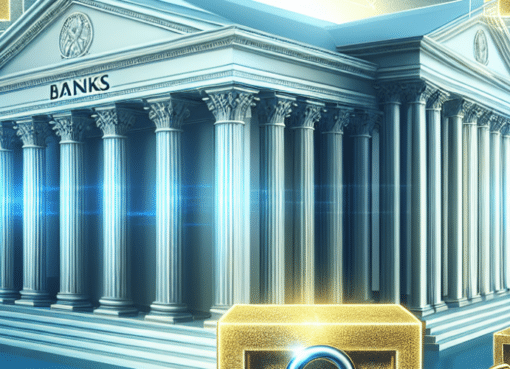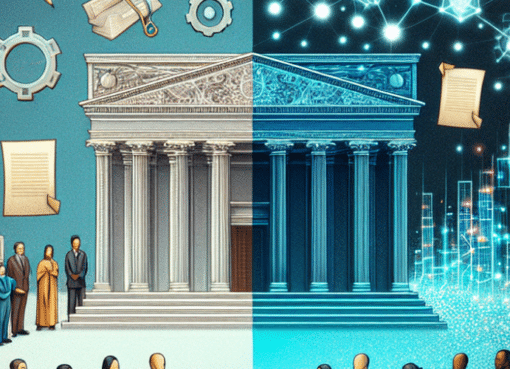In an unprecedented move within the blockchain industry, major technology companies and blockchain startups have come together to form the Global Blockchain Interoperability Alliance (GBIA). Announced earlier today, GBIA aims to create and enforce standards that ensure seamless interoperability between different blockchain technologies and platforms. This landmark initiative marks a significant step towards widespread adoption of blockchain technology across various sectors.
The founding members of GBIA, which include tech giants like IBM and Microsoft, alongside blockchain innovators like Ethereum and Cardano, reflect a broad spectrum of the blockchain ecosystem. The alliance’s mission is to address one of the most pressing issues in the blockchain community: the fragmentation of blockchain networks which often operate in silos and are incompatible with one another.
GBIA plans to develop a unified framework that will enable blockchains to communicate more effectively, allowing for the smooth transfer of data and value across different platforms. According to the official press release from GBIA, this will not only enhance the efficiency of existing applications but also pave the way for new use cases that require cross-chain interactions.
The Need for a Unified Blockchain Standard
The lack of standardization in blockchain technologies has been a significant barrier to adoption, particularly in sectors like finance, supply chain management, and healthcare, where multiple stakeholders must interact across various platforms. Currently, companies looking to integrate blockchain into their operations must choose a single platform, limiting their ability to work with partners who may use different technologies.
By creating a standardized protocol, GBIA hopes to remove these barriers, making it easier for enterprises to adopt blockchain technology and for existing projects to expand their reach and functionality. “Blockchain technology promises to transform numerous industries, but we’ve only scratched the surface of what’s possible,” said Dr. Leslie Cohen, technology strategist at IBM and interim chair of GBIA. “Interoperability is the key to unlocking the full potential of blockchain, and that’s what we aim to achieve with GBIA.”
Immediate Impact and Industry Support
The announcement has already made waves across the tech and financial sectors, with several large corporations and blockchain projects expressing their support for the initiative. Analysts predict that this move could accelerate the integration of blockchain technologies in mainstream business processes, fostering a more collaborative and efficient global market.
Furthermore, GBIA’s efforts are supported by various regulatory bodies that have expressed interest in standardized blockchain practices to enhance regulatory compliance and oversight. This regulatory backing could further speed up the adoption and integration of blockchain technologies in regulated industries.
Challenges and Future Plans
While the formation of GBIA is a significant step forward, the alliance faces challenges in harmonizing the diverse technologies and governance models of its members. Each blockchain platform has its unique features and capabilities, and finding common ground will require careful negotiation and compromise.
The alliance has outlined a phased approach to tackle these challenges. The initial phase focuses on establishing a common language and protocol for basic interoperability. Subsequent phases will delve into more complex aspects, such as smart contract compatibility and data privacy standards.
In conclusion, the formation of the Global Blockchain Interoperability Alliance represents a pivotal moment for the blockchain industry. By addressing the critical issue of interoperability, GBIA not only enhances the utility of existing blockchain solutions but also opens up new possibilities for innovation and collaboration. As the alliance moves forward with its agenda, it will no doubt be a key player in shaping the future of blockchain technology.




